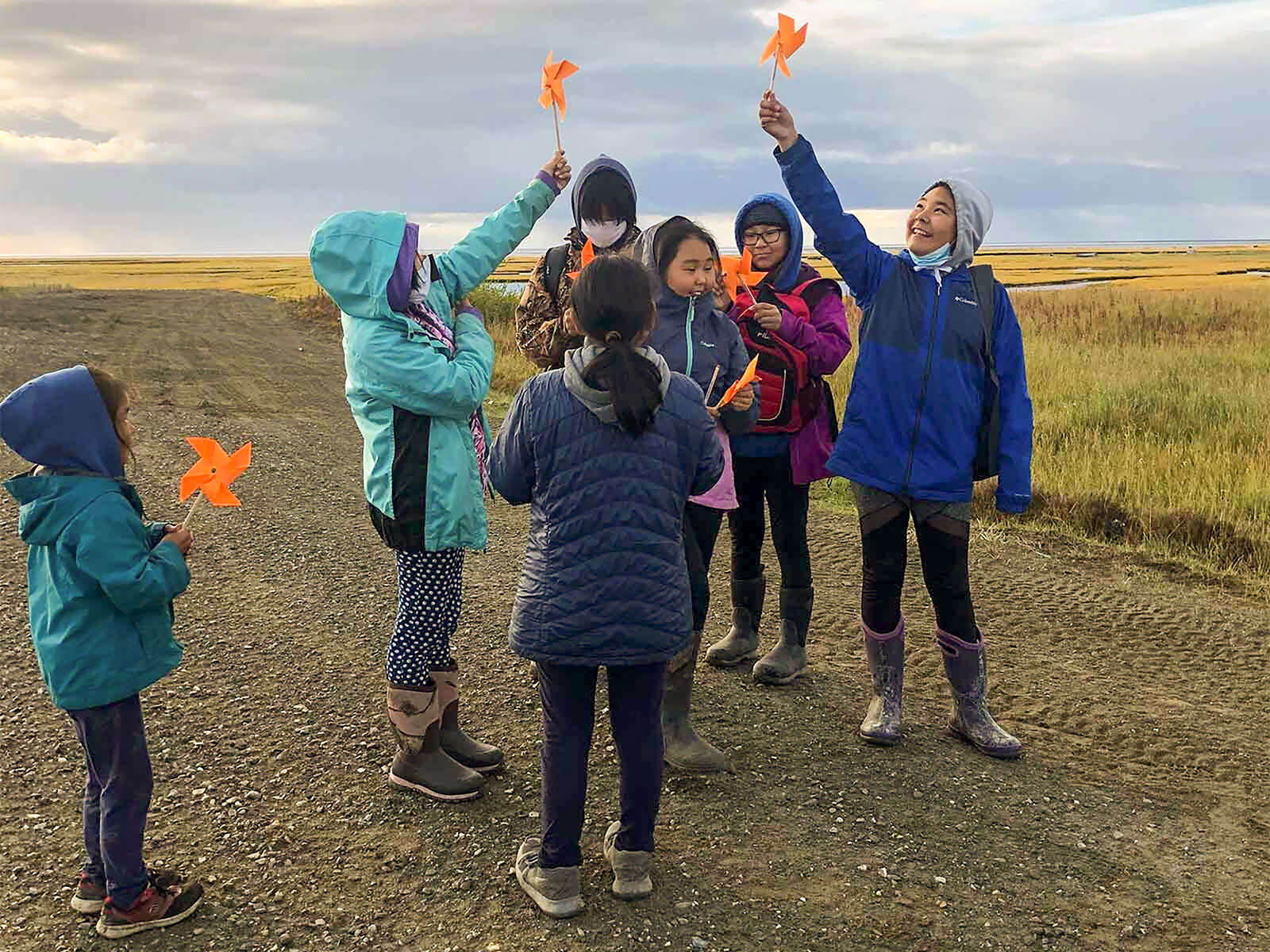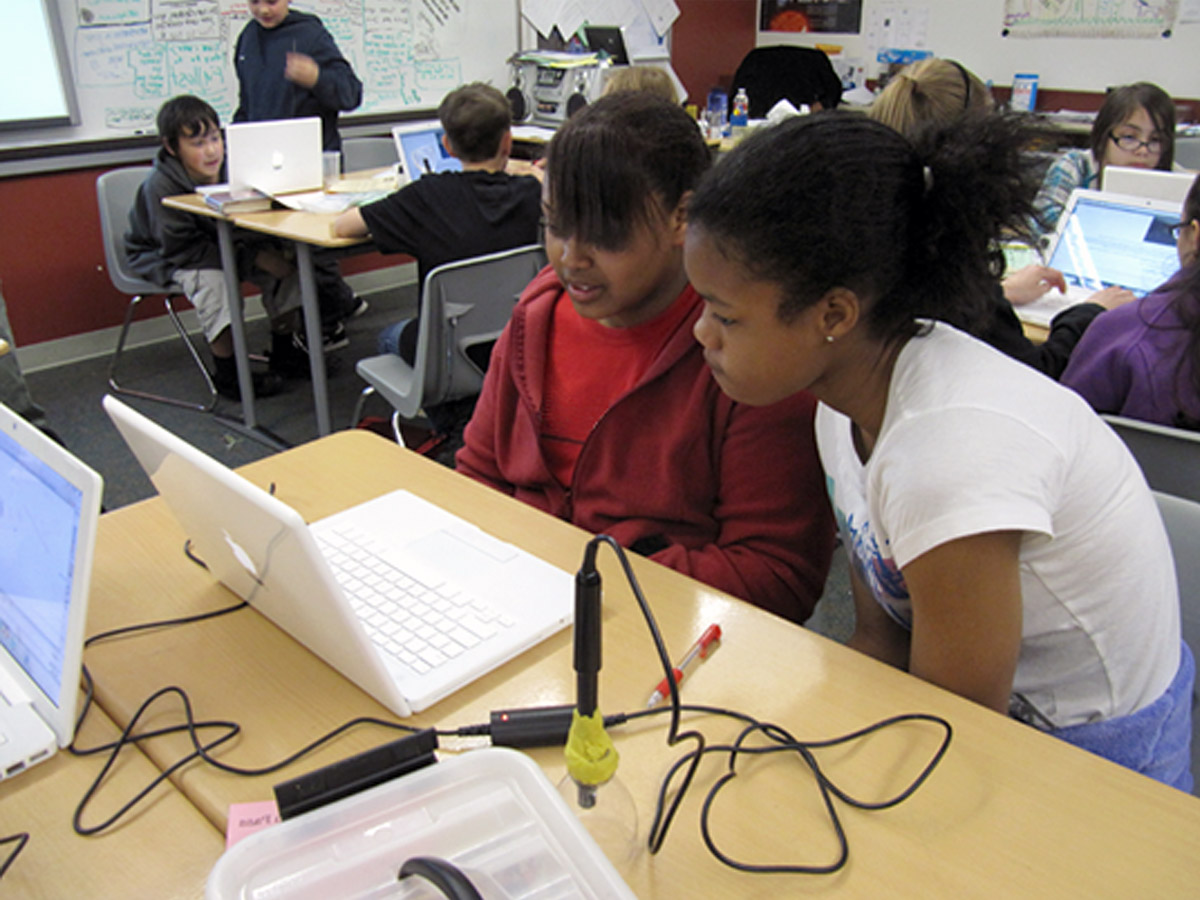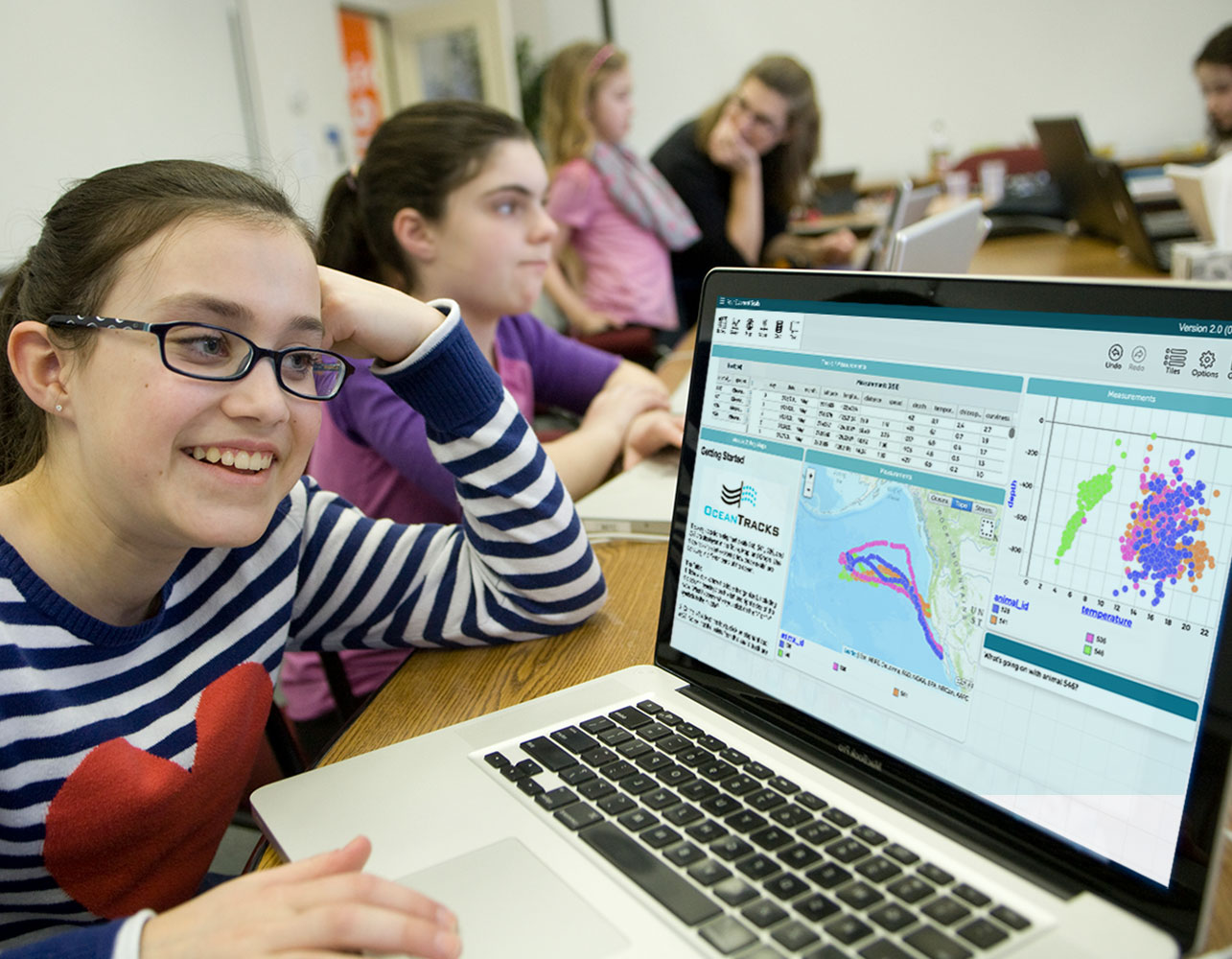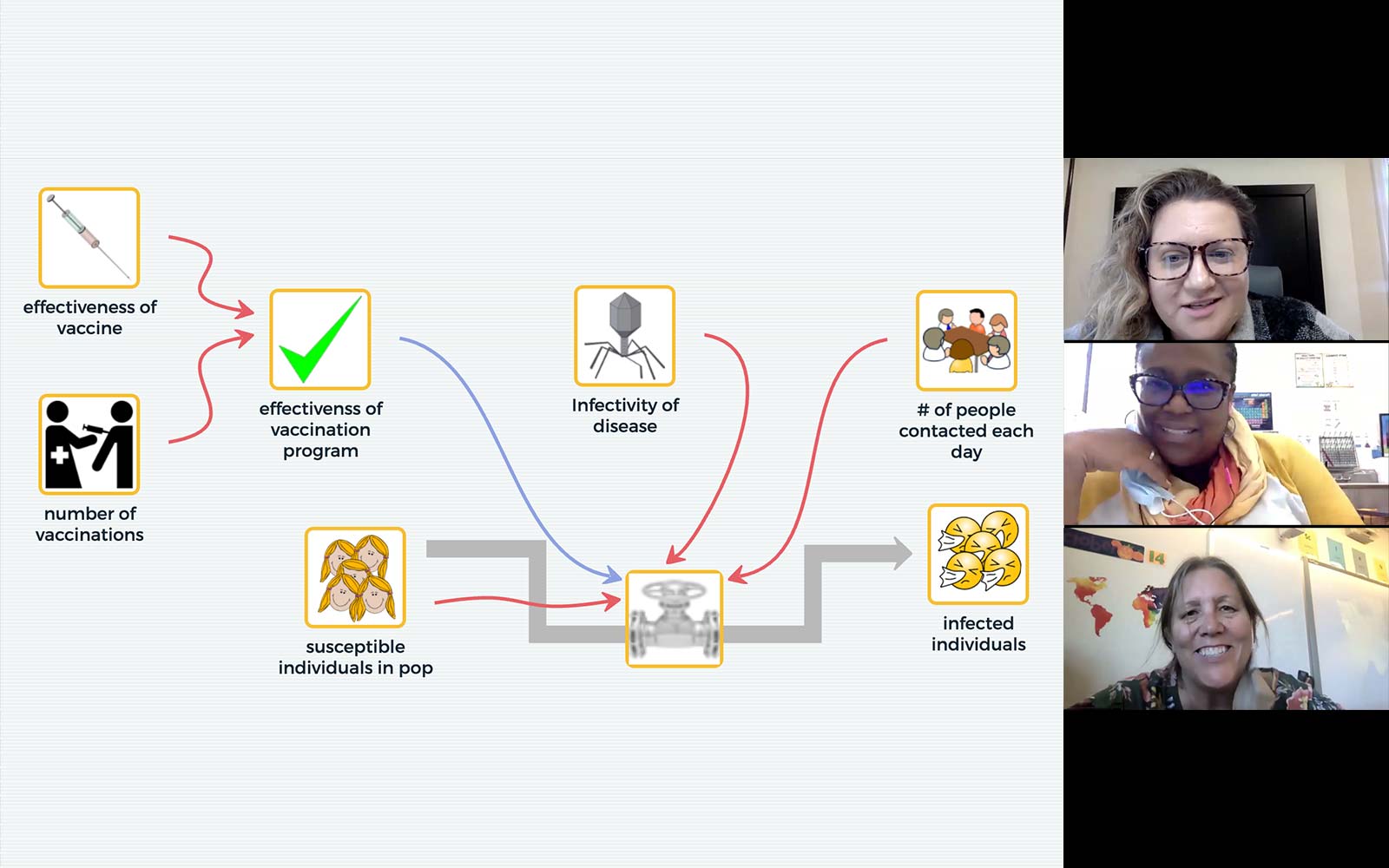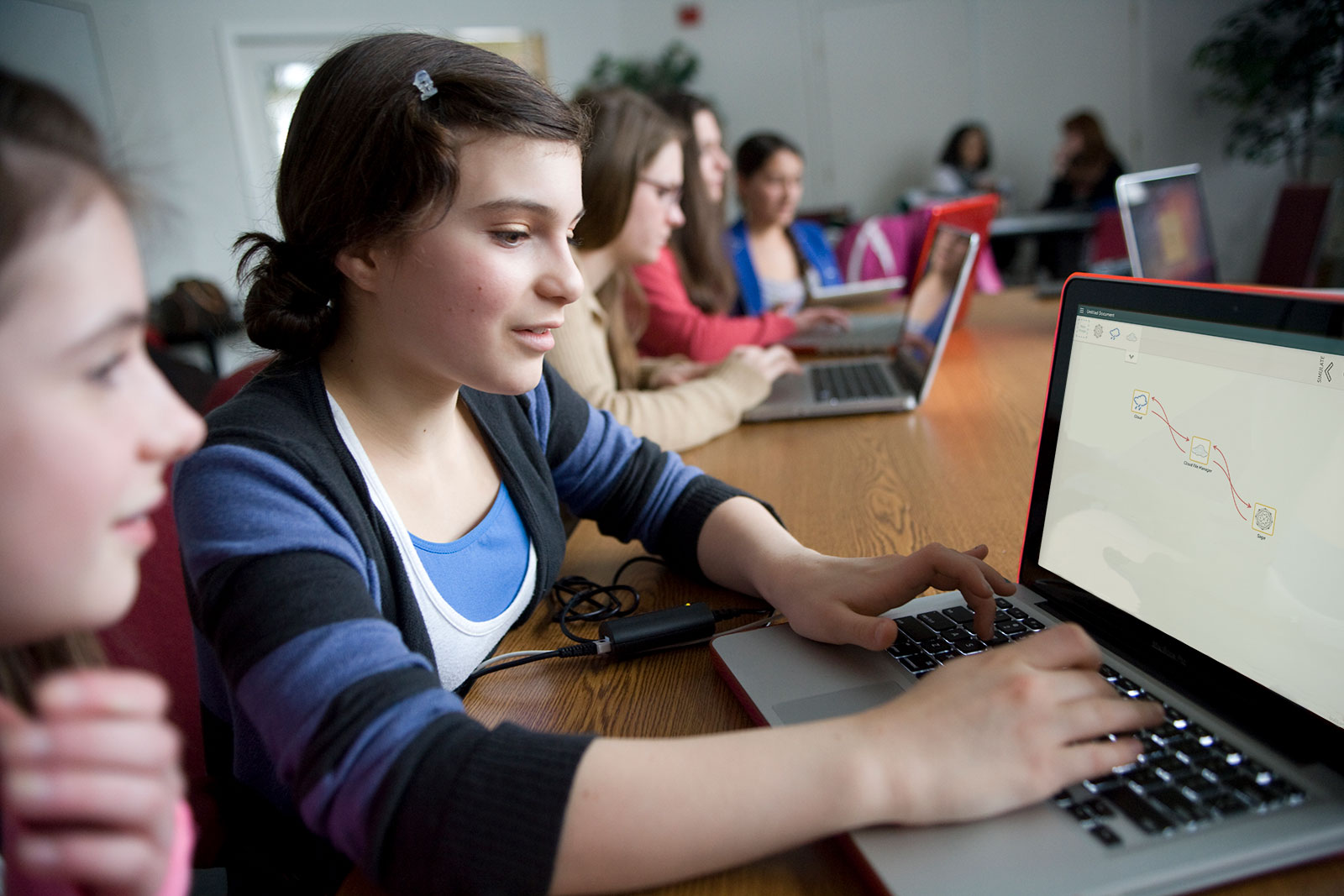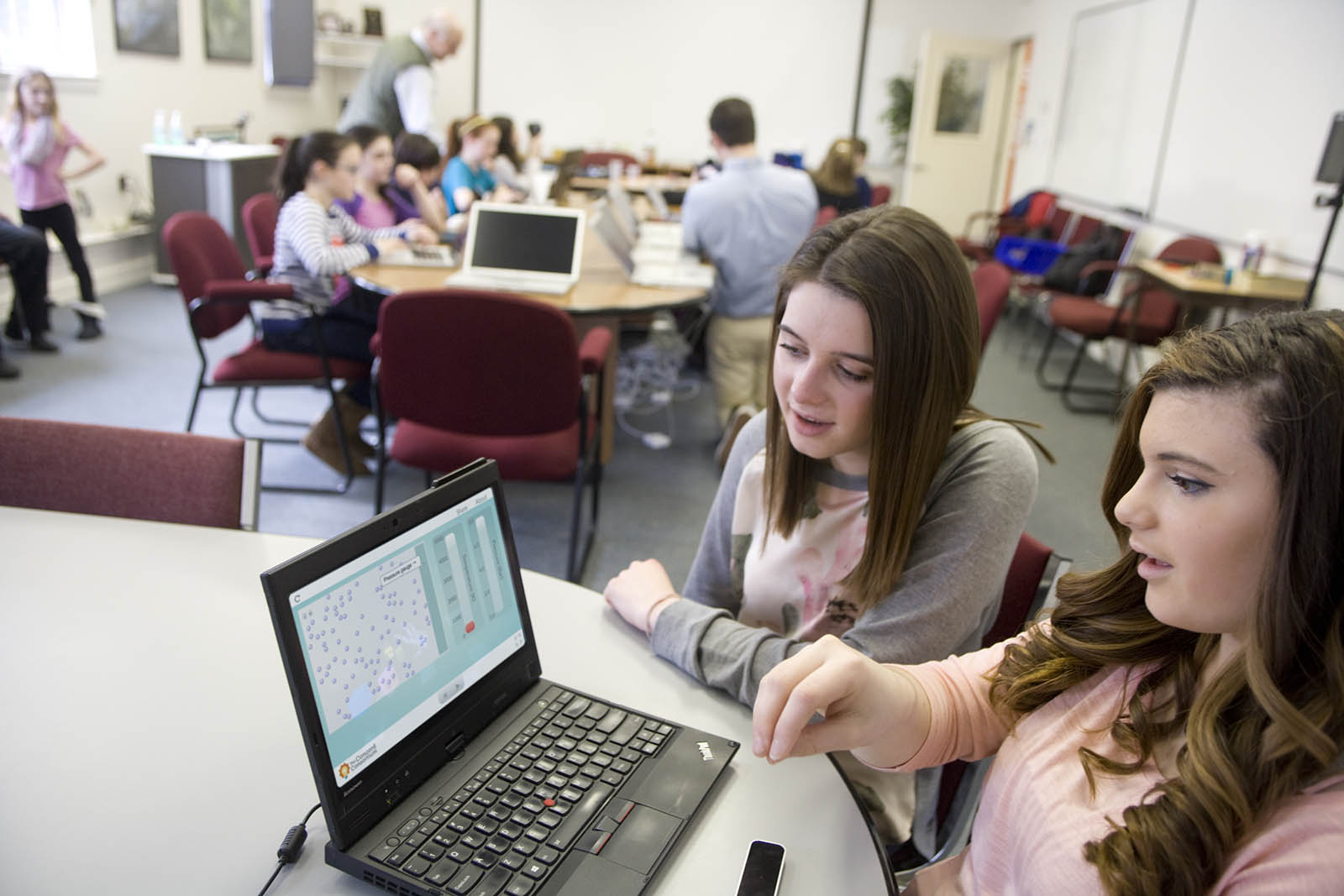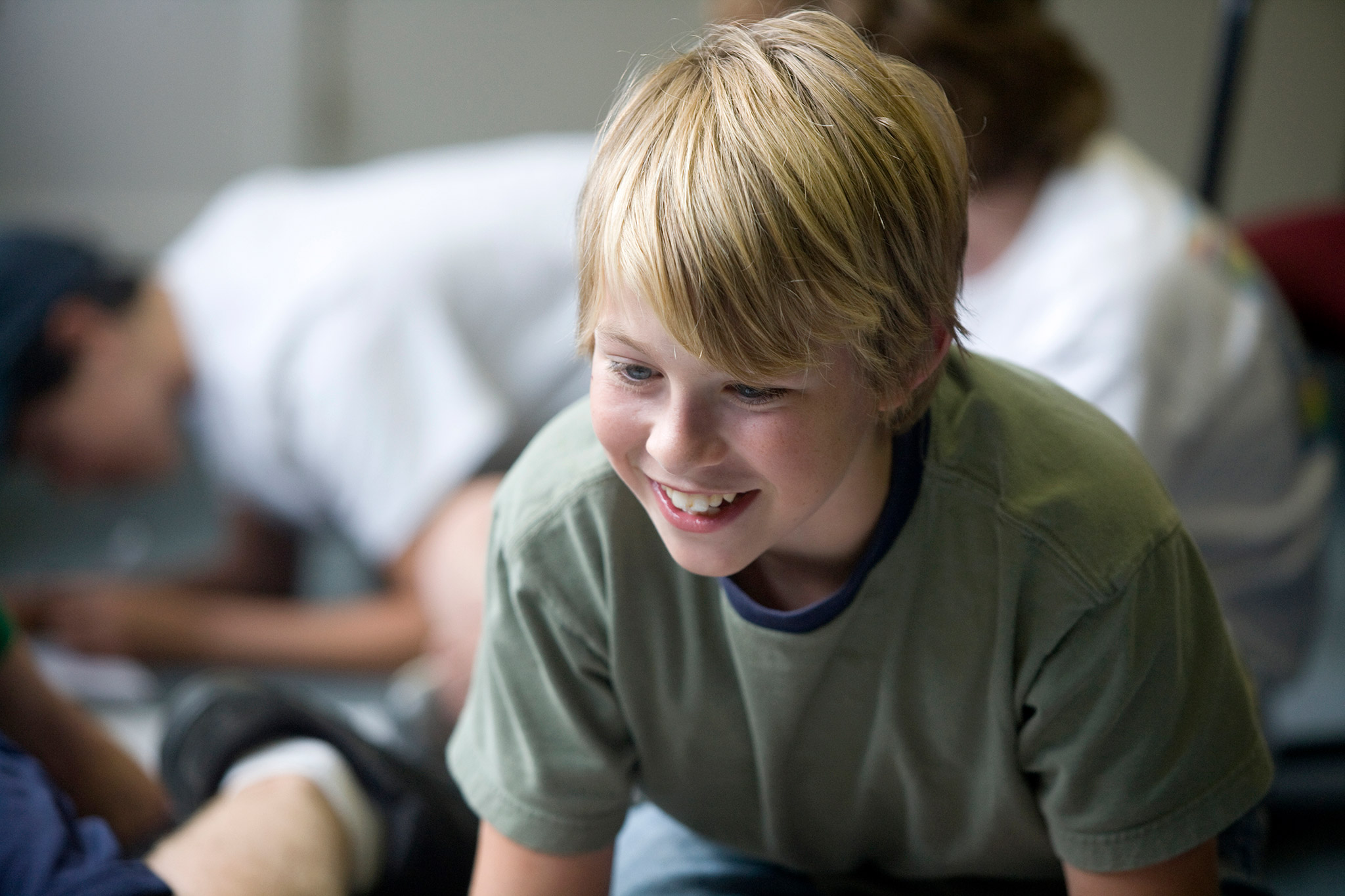Innovative Technology in Science Inquiry for Yup’ik Students
Importance
Hooper Bay, Alaska, sits on the coast of the Bering Sea closer to Siberian Russia than to the contiguous U.S. About 95% of the residents are of Central Yup’ik Eskimo descent. The Alaska Native Village of Hooper Bay is the federally recognized tribal government for the traditional Yup’ik village of Naparyaarmiut. The Hooper Bay Charter School has at its core an instructional design that incorporates multidisciplinary instruction; multi-age grouping of students; emphasis on STEM, discovery, and investigation; facilitation of growth mindset and increasing self-regulation; an expectation of Elder, parent, and community involvement; engagement with scientists and researchers working in the region; and use of the Yuuyaraq curriculum created by Calista Education and Culture, Inc. as a foundation for all actions and choices.
Two new projects—focused on grades 3-5 and 6-8, respectively—are supporting Yup’ik students in Hooper Bay. We are engaging community partners, teachers, and students in adapting Concord Consortium STEM units by including local phenomena and Universal Design for Learning (UDL) features. The goal of both projects is to create dual-language, place-based STEM curricula based on Innovative Technology in Science Inquiry (ITSI) resources. The curricula will support the needs of English language learners while simultaneously providing a means for students to learn in their Yugtun Alaska Native language.
We will embed UDL and Yugtun language features such as a glossary in both English and Yugtun, videos with Elders, and speech-to-text and text-to-speech capabilities. The curricula will follow the multidisciplinary and multi-age 7E model of instruction at the core of Hooper Bay Charter School, with design features that are adaptable to other languages and cultures. Students will receive Alaska-authored trade books and other print resources related to the STEM units for home use and sharing. Teachers will participate in remote professional development and learn to use data-based evidence about their students’ learning through the Concord Consortium’s reporting and dashboard systems to individualize instruction.
The projects aim to increase teachers’ self-efficacy for multidisciplinary science instruction for dual language learners; provide training for critical evaluation of culturally relevant curriculum; and improve student interest and achievement in literacy, math, and science, as well as their reported sense of cultural connectedness.
Publications
- The Concord Consortium (2023). Teacher innovator interview: Renee green. @Concord, 27(2), 15.
